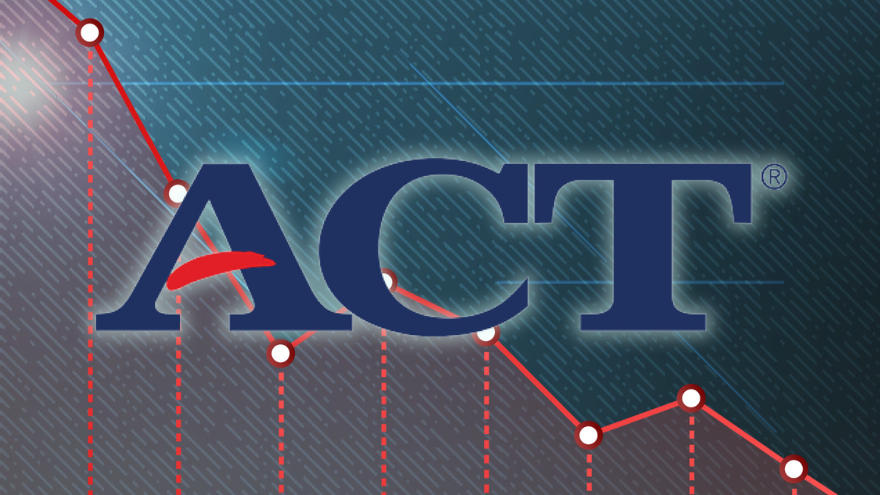The average composite ACT score has reached an all-time low after steadily dropping for years.
The standardized test is used to measure college readiness. The organization reports that students who score above their readiness benchmarks have a “50% chance of earning a B or better and approximately a 75% chance of earning a C or better in the corresponding college course.”
More than four out of every 10 high school seniors do not meet the ACT’s college readiness benchmarks, the testing organization reported on Oct. 11. Scores declined across the board with a 0.4 decrease in English, 0.3 decline in math, a 0.3 decline in reading, and a 0.3 decline in science. Overall, 70% of high school seniors are below the readiness benchmark.
The newly released data comes months after the Class of 2023 graduated. Students who graduated this year were in their first year of high school during the onset of the COVID-19 pandemic.
“This is the sixth consecutive year of declines in average scores, with average scores declining in every academic subject,” said Janet Godwin, CEO of the ACT, in a press release. “We are also continuing to see a rise in the number of seniors leaving high school without meeting any of the college readiness benchmarks, even as student GPAs continue to rise and students report that they feel prepared to be successful in college.”
“The hard truth is that we are not doing enough to ensure that graduates are truly ready for postsecondary success in college and career,” added Godwin. “These systemic problems require sustained action and support at the policy level.”
This year’s ACT scores are the lowest on record since at least 1991, according to Axios.
As the admissions test score has plummeted, college enrollment has simultaneously declined over the last three years. The National Student Clearing House, which analyzes college enrollment data, reported in January that college enrollment is down by over 1 million students overall and about 1.1 million undergraduates compared to the spring of 2020.
Many colleges and universities have stopped requiring that applicants submit SAT or ACT scores. Some argue the tests do not accurately indicate a student’s academic ability. As of 2022, Bowdoin College, the University of Chicago and Wake Forest University all moved to be “test-optional,” meaning they would accept ACT or SAT scores but they were not needed for admission.
“Our research has shown that a student's performance in high school is the most significant predictor of academic success at UNE,” Scott Steinberg, the head of admissions at test-blind University of New England, told CBS News in May of 2020. “Standardized tests provide very little — if any — incremental value beyond the high school record and grade point average.”
Other schools, including the Massachusetts Institute of Technology, Stanford University, and Duke, temporarily suspended their test requirement for application cycles between 2024 and 2026 because of the COVID-19 pandemic, per Prep Scholar.

